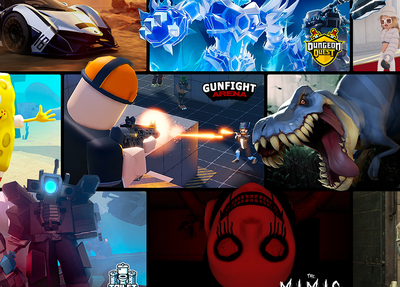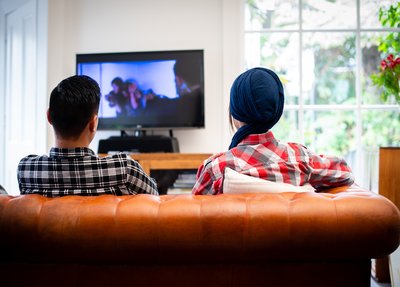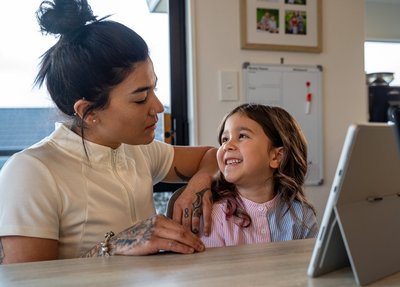
Free-range internet chickens
Caitlin on May 31, 2023
The Classification Office runs an event called Censor for a Day where we invite senior Media Studies students to a local cinema, watch a pre-release or recent film and walk through the criteria used to classify films, video games, books and other publications. We also take this as an opportunity to learn from rangatahi and understand what they think about age ratings and content warnings.
Rangatahi have the ability to live like free-range chickens on the internet and can watch whatever they want, whenever they want. This is something that parents, caregivers, teachers and government organisations are constantly worried about and are trying desperately to keep them safe from. However, I don’t think we are giving them enough credit.
The Classification Office believes that no matter your age, everyone has different lines, no-go zones and sensitivities to different themes, storylines and depictions. Rangatahi are often stereotyped as being the same and what affects one will have the same impact on another. The reality is that young people are so diverse and like the rest of us their viewing experiences are so different – and they are very much aware of this.
At the March 2023 Wellington region Censor for a Day events we watched ‘Cocaine Bear’, a graphically violent comedy about a bear that goes on a rampage after ingesting a lot of cocaine. After watching the film and discussing the content we sat down with a few students and chatted about what they thought of the film and the event.
“Cocaine Bear was really enjoyable to watch. I thought it was a really exciting film and it was a genre I don’t often go for which made it cool.”
“I thought it was pretty funny, I don’t really mind gore. The comedy lightens the situation a lot. It makes the gore more light hearted.”
“I am the same and don’t normally watch that type of genre, I am very prone to jump scares but I really thought it was cool and had a huge rush of adrenaline. It was a different movie in the sense that it was very comedic but also very graphic.”
Drug use was a big theme in the film (literally in the title) so we talked about the use of cocaine. Some of them found it humorous while others focused on the potential impact this could have on younger viewers.
“It was pretty funny that the bear was on cocaine.”
“The movie did include drug use but not like a step by step so not as significant as maybe other films. The kids were not really doing it properly.”
‘It’s not about addiction or anything bad, it’s just about a bear going crazy so it’s not really glamorising drug taking.”
Some noticed the offensive language in the film more than others.
“I wasn’t even aware of the language in the film.”
“Really? There was quite a bit and even from the kids.”
“I thought the language was pretty mild when you compare it to something like school.”
Graphic violence was a huge aspect of ‘Cocaine Bear’ and because of this all the students agreed that the film should have an age rating of R16.
“A high R16 on the cusp of R18.”
“R16 because of the comedy, it brings the age restriction down a bit.”
“It wasn’t much horror or anything just straight gore and that is the only thing that pushed it to that R16 level.”
While there were many scenes of a bear violently mauling and mutilating characters, there was also gun violence which they felt wasn’t as graphic.
“In comparison the gun violence was fine, it wasn’t extreme. Actually except for when the guy got shot in the head.”
“I focused so much on the shot fingers however with gun violence we are used to seeing it a lot, especially in American films so it is kind of detached from reality. You wouldn’t expect to see that in New Zealand.”
After chatting specifically about ‘Cocaine Bear’ we wanted to know if there were genres and challenging content they tend to avoid and how they do this.
“Gore is something I typically avoid.”
“I really don’t like themes of suicide and self-harm. That is just not my thing and content warnings help with that. We watched ‘One Were Warriors’ and it had a suicide in it and that wasn’t something that I was very keen on so is usually something I would choose to avoid.”
‘With content warnings I look for anything that flags non-consensual sex. Anything to do with that I like to stay away from. That is something that is very real for a lot of people. A lot of movies tend to not cover the issue very well and don’t go as in-depth as they should. It’s quite a light storyline and they brush over it and is not a very good way for people to watch things like that.”
Engaging with and listening to young people shows us that they are thinking a lot about what they watch. Rangatahi internalise content in different ways and the way they react or feel about it varies.
During this kōrero we learnt that rangatahi draw boundaries for themselves with what they watch. They know what they like and don’t like, and have worked out ways to keep themselves safe. It is clear that they also think about what they are watching in-depth and have a huge amount of empathy for their peers and younger viewers as well.
So for us parents, caregivers, teachers and government workers, if we focus less on what rangatahi are watching and more on how they are watching and thinking about what they are watching we might be able to stop running around like headless chickens. We also won’t miss those crucial opportunities where we can learn alongside our brilliant rangatahi.
Thank you to the students from Paraparaumu College and Scots College who shared their thoughts, insights and wisdom with us. Your mana inspires us to continuing promoting youth voice in government and in spaces where young people aren’t but should be.
Further Reading
Subscribe to our blog
Stay up to date with the Classification Office blog.


